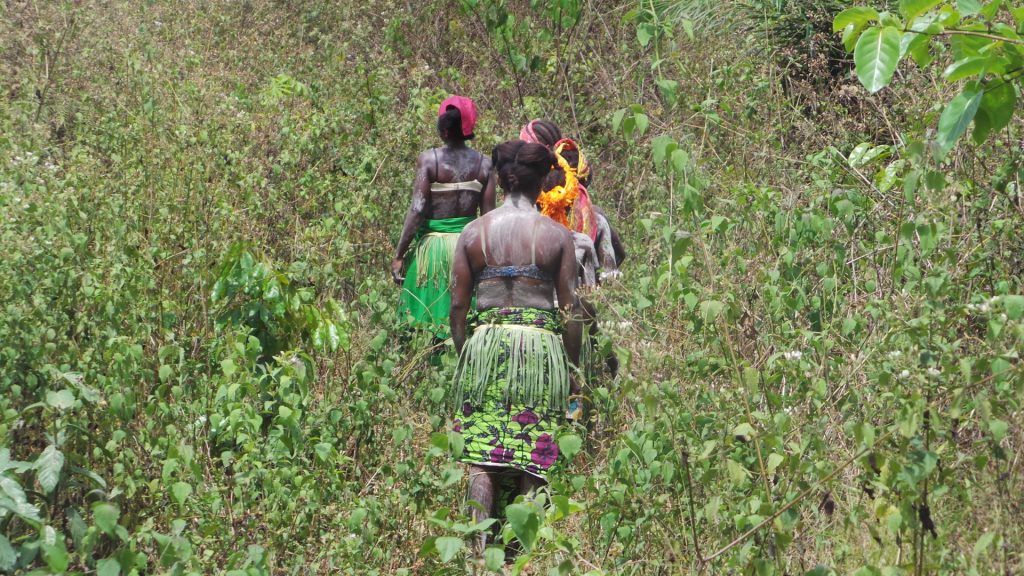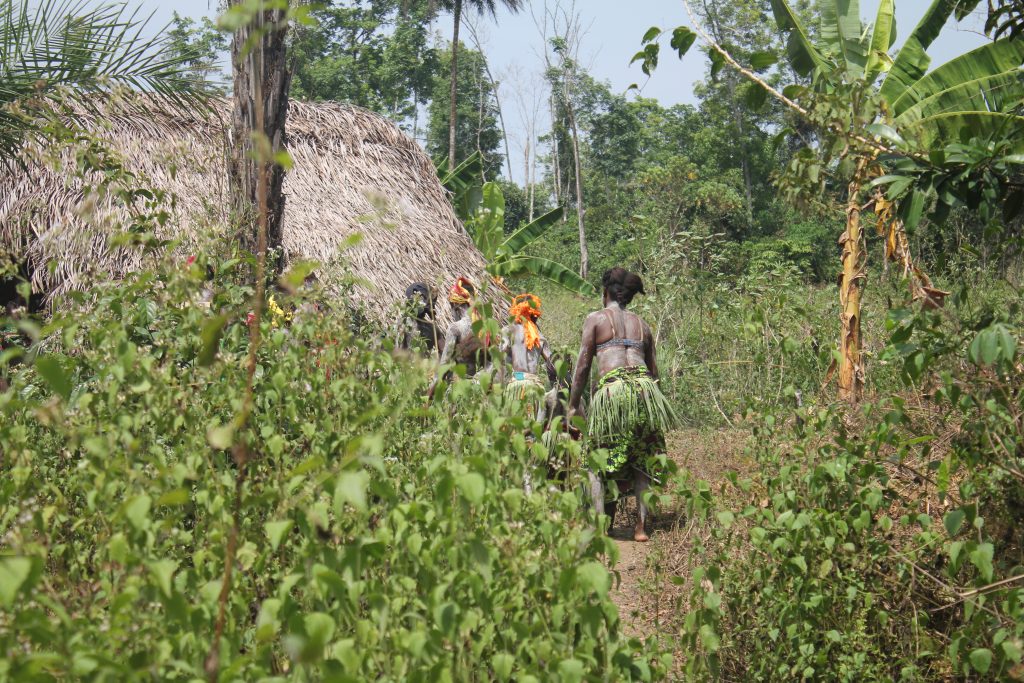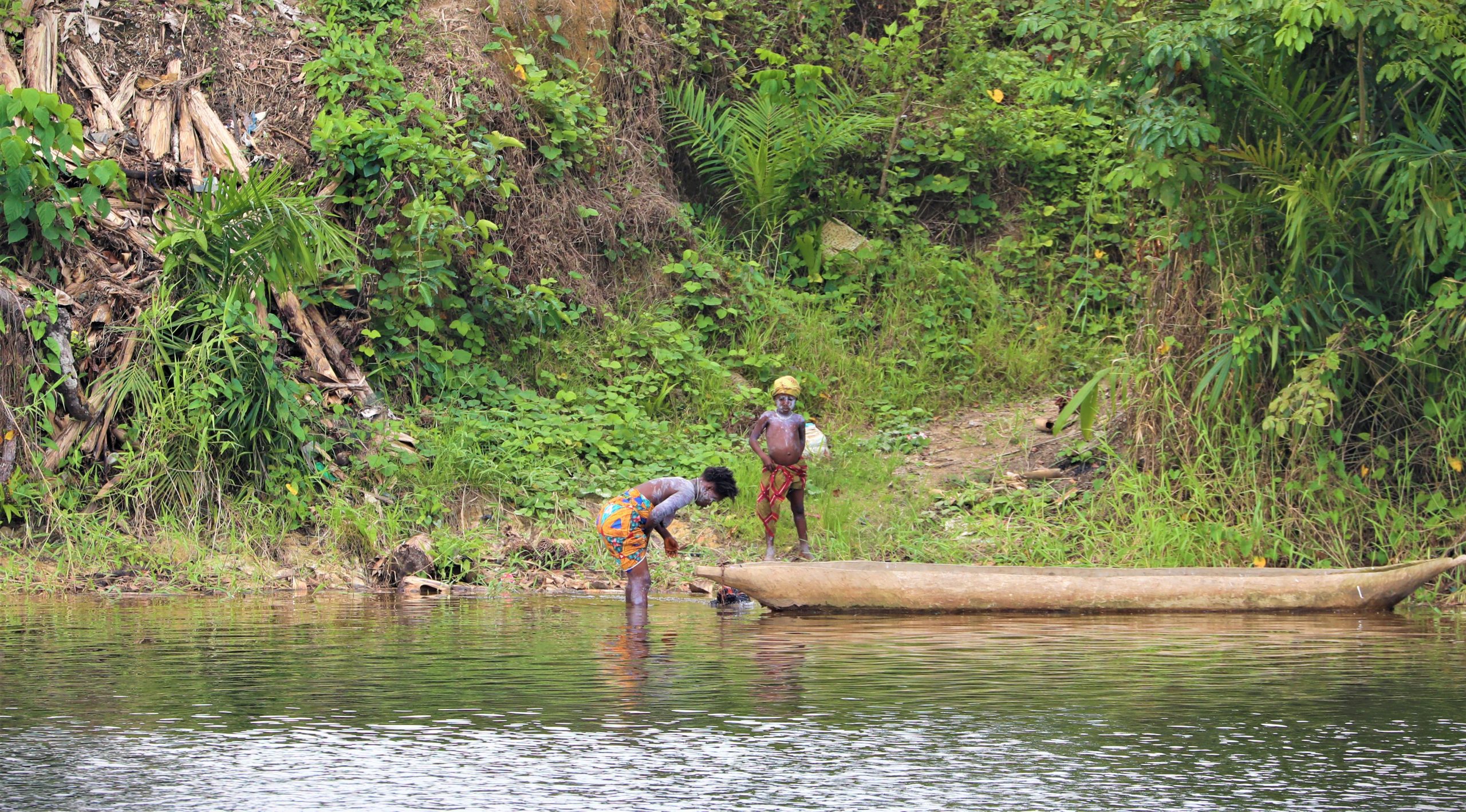Along the Farmington River in George Okai Town, Margibi County, a teenager, chalked with white clay mud, washes some linens while the other kid probably between 6-7 years old holds some items and looks on.
The two kids had just taken bath, applied the chalked clay mud, and were preparing clothing for the next day.
The chalked clay mud on the two kids indicates that the two kids have been initiated into the Sande Society and their genitals have been removed in fulfillment of traditional practices that are meant to prepare them for womanhood.
Liberia, a country with a rich tapestry of cultures and traditions, continues to grapple with the deeply entrenched practice of Female Genital Mutilation (FGM).

Despite significant strides towards change, FGM remains a critical issue affecting the lives of women and girls in both rural and urban areas.
In February 2022, Chief Zanzan Karwor, the head of the Traditional Council of Liberia, announced a three-year suspension on FGM.
“This bold step is a positive stride toward the protection of women’s and girls’ rights in the country, and we commend the Government of Liberia for this. However, without the existence of a law criminalizing the practice of FGM in Liberia, the protection of women’s and girls’ rights remains a huge concern”; according to Equality Now, a leading nonprofit fighting against FGM in Liberia and most part of Africa.
NGOs and government agencies have tirelessly conducted awareness campaigns, educating communities about the health risks and human rights violations associated with FGM. These campaigns have played a pivotal role in shifting perceptions.
Facilitating a two-day media training workshop sponsored by UN Women to equip 40 journalists from Liberia to report on FGM, Liberia’s Culture Ambassador, and the National Traditional Queen, Julie Endee told journalists that FGM is practiced in 11 of Liberia’s 15 counties.
“Four counties in Liberia do not practice FGM. Those 4 counties practice Bodio”; Amb. Julie Endee asserted, adding, “In the Mende Mel society where they practice FGM, there are 3 kinds of Sande”.
According to the traditional expert, the “Sande for the Muslim and the Sande for the Masked” are the two Sande societies that practice FGM. The last Sande is the Kpolowah Sande, which does not practice FGM.
The Cultural Queen further propended that “If we are talking about circumcision at this time, then we need to see where we can [re]move the FGM part of the Sande and keep the positive part of the Sande”.
Encouragingly, some communities have embraced alternative rites of passage that do not involve FGM, offering girls a path to womanhood that is empowering and safe.

The involvement of traditional leaders has been instrumental in challenging deep-seated cultural beliefs and fostering discussions about the harmful effects of FGM.
In 2018, President Ellen Johnson Sirleaf, through an Executive Order banned FGM practice but that lasted for just one year and it was not enough to bring an amicable solution to the problem.
Her successor, President George Manneh Weah, has taken the approach mechanism to involve the traditional Zoes and chiefs to holistically derive at a solution to the problem.
The World Bank estimates that as of 2020, Liberia had an FGM prevalence rate of 31.8% .
While progress has been made, several challenges persist
Cultural Significance: FGM is deeply ingrained in many Liberian cultures and is seen as a symbol of purity and tradition. Changing these deep-seated beliefs requires time, sensitivity, and community engagement.
Enforcement: Laws against FGM exist, but enforcement can be uneven, particularly in remote rural areas where access to justice is limited.
Economic Factors: Poverty often plays a role in perpetuating FGM, as families may view it as a source of income through initiation fees or as a way to enhance a girl’s marriage prospects.
Healthcare Access: Inadequate access to healthcare, especially in rural areas, poses a significant challenge. This can make it difficult for girls and women to receive medical care in case of complications arising from FGM.
Liberia’s journey to eradicate FGM is ongoing, but the progress made underscores the importance of a holistic approach. Eliminating FGM requires concerted efforts from the government, NGOs, traditional leaders, and the communities themselves.
Empowering girls and women, ensuring access to healthcare, and addressing the root causes of this harmful practice are vital steps toward a more equitable and healthier future for Liberia’s women and girls.
The fight against FGM in Liberia continues, fueled by a collective determination to safeguard the rights and well-being of women and girls, transcending cultural boundaries in the pursuit of lasting change.
Liberian-born Emmanuel Orlind Cooper is an accomplished multimedia journalist with extensive experience covering news and stories on a variety of media platforms. Orlind's work frequently demonstrates his profound grasp of the region and its complexity, given his Liberian heritage.
Now residing in Woodbridge, Virginia, he keeps connecting with readers across continents with his perceptive journalism and sharing his viewpoint. He is well-respected in the sector because of his unwavering commitment to honesty and morality, which sets him apart in the field.
Orlind's work is more than simply his job; it's a dedication to giving voice to the voiceless, illuminating unsung tales, and advancing the worldwide conversation on important concerns. His goal as a journalist is to use the media's power to change the world, not just to disseminate information. He is a key player in modern journalism because of the inspiration, education, and engagement that his work consistently provides.


